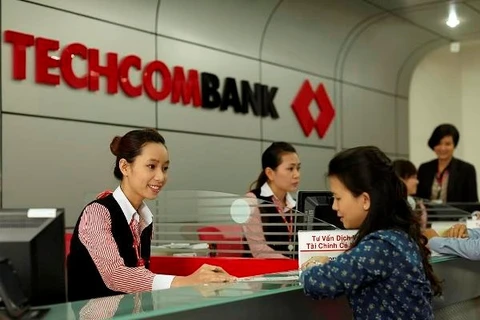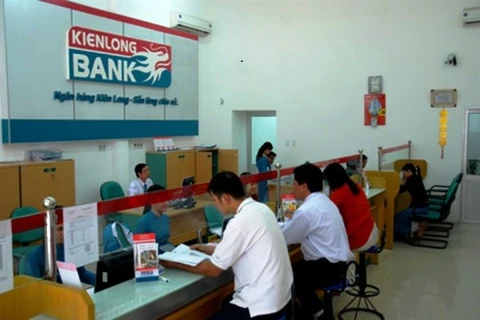Hanoi (VNS/VNA) - Prosperous business performance and positive bank share price trends in the stock market are expected to help some commercial banks meet their capital increase deadline as required by the State Bank of Vietnam (SBV).
According to the National Financial Supervisory Commission, many banks are under great pressure to hike capital to satisfy the SBV’s regulations on meeting Basel II standards by the end of 2020.
Under the SBV’s Circular No 41/2016/TT-NHNN, banks must maintain a capital adequacy ratio (CAR) of at least 8 percent as per Basel II norms, starting in 2020.
With the new regulation, which replaced Circular 13/2010/TT-NHNN, the CAR of many banks will fail to reach the minimum level set by the SBV if they fail to increase capital.
The CAR is expressed as a percentage of the bank’s capital to its risk-weighted assets and is one of the main metrics used to determine the stability and efficiency of financial systems. The higher the bank’s capital adequacy ratio, the higher the degree of protection of depositor’s assets.
According to the NFSC’s report, the average CAR of the banking sector has been consistently falling since 2017.
It dropped from 11.6 percent at the end of 2016 to 11.1 percent at the end of last year. The ratio continued to go further down by 0.25 percentage points to 10.85 percent by the end of February 2018, of which, State-owned commercial banks decreased by 0.16 percentage points and joint stock commercial banks reduced by 0.44 percentage points.
Analysts say this is because banks’ assets have grown much more rapidly than their equity.
In 2016, the sector’s total assets went up by 16 percent but charter capital up by only 6.11 percent.
Last year, all big State-owned commercial banks, including VietinBank, Vietcombank and BIDV, had total assets exceeding 1 quadrillion VND (43.85 billion USD) after rising by 9.3 percent while their equity grew by only 4.6 percent.
Experts warned that when BASEL II standards are applied, banks’ CAR will plunge due to an increase in the quantum of their risky assets.
Meanwhile, the group of State-owned banks has an average CAR of 9.69 percent, close to the stipulated minimum. It will plunge below 8 percent when BASEL II standards are applied.
Therefore, most banks planned to increase their charter capital in recent years.
The stock market surged significantly, helping banks to raise charter capital through share sales and dividend payouts by shares; according to the National Financial Supervisory Commission.
To capitalise on the growth of the stock market, many banks have rushed to issue shares for capital increase.
The Military Bank (MB) and VPBank, for example, recently received the SBV’s approval to raise their charter capital. Accordingly, the VPBank will increase its charter capital from 15.7 trillion VND (694.7 million USD) to 25.299 trillion VND, while the MB’s charter capital will likewise raise from 18.15 trillion VND to 21.6 trillion VND.-VNS/VNA
VNA

























